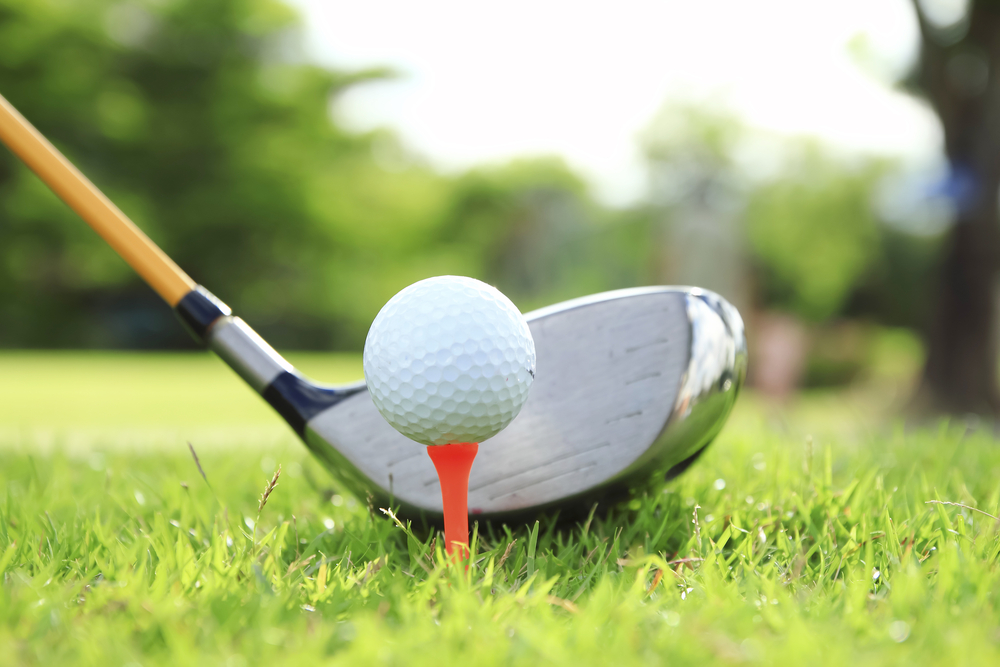Stay on the Green by Preventing Golf Injuries
 Golf is both a competitive sport and a relaxing pastime for young and old. Whether you play professionally or just as a way to unwind, golf is still a sport which can cause serious injury. Most golf injuries come from overuse; repetitive swinging motions that wear on muscles and joints which can lead to injury. However, like with most sports, injuries can be prevented if you have an understanding of what they are and what causes them. Simply a change in form can make all the difference.
Golf is both a competitive sport and a relaxing pastime for young and old. Whether you play professionally or just as a way to unwind, golf is still a sport which can cause serious injury. Most golf injuries come from overuse; repetitive swinging motions that wear on muscles and joints which can lead to injury. However, like with most sports, injuries can be prevented if you have an understanding of what they are and what causes them. Simply a change in form can make all the difference.
Common Golf Injuries
Golfer's Elbow
One of the most common golf injuries is Golfer's Elbow or medial epicondylitis. Medial epicondylitis is an inflammation of the tendons that attach your forearm muscles to your elbow. Inflammation is caused by repeating the same motions -- in this case, swinging a golf club -- over and over again.
Lower Back Pain
Another common injury that golfers experience is lower back pain. Back pain can be caused by pulling or straining the muscles in your lower back during your swing or from carrying your golf bag. Also, people who suffer from chronic back pain might have difficulty with their golf game.
Wrist Injuries
Golfers often sustain wrists injuries. Carpal Tunnel Syndrome is an overuse injury that affects the median nerve in your wrist. The median nerve travels from your wrist to your forearm through the carpal tunnel. In addition to the nerve, the carpal tunnel also contains flexor tendons so when swelling occurs, they put pressure on the median nerve. CTS can be minor to serious depending on the extent of the injury.
Another wrist injury golfers might experience is DeQuervain's Tendinitis. DeQuervain's Tendinitis is an inflammation of the tendons in the thumb, causing pain in the wrist near where your thumb connects to it.
Other wrist injuries include Wrist Impaction Syndrome, which is caused caused when the bones of the wrist bang into one another during repetitive movements and ECU Tendon Subluxation, which is when the sheath holding the wrist tendon begins sliding around.
Knee Pain
Knee pain and injury has plagued even professional golfers like Tiger Woods. It can be caused by any number of issues including arthritis, a torn meniscus or an ACL tear.
Prevention
There are several things you can do prior to stepping on the green to keep your golf game from being impacted by injury.
Warming up might seem a little silly since golf is a lower impact sport, but stretching and preparing your muscles before any sport is recommended. Stretch out your arms, back and legs. Practice your swing, starting off slowly at first to check your form.
If you are finding yourself sore after a round of golf, try conditioning between games. Light exercise like walking or jogging can help to strengthen your muscles, or try an electric muscle stimulator to help you recover from soreness but also build up muscles in your arms, legs and back to reduce your risk of injury.
Make sure your swing isn't the issue. Swinging a golf club is a full body motion, utilizing multiple muscle groups as you simultaneously turn your body while hitting the ball. Think to yourself: how's my posture? Are my feet shoulder-width apart? Am I hunching over? Having proper form before you swing can help reduce the risk of injury. When you do hit the ball, make sure your swing is fluid. Don't try to hit the ball too hard. Harder swings don't necessarily mean a better game. Work on having a smooth, consistent tempo.
If you're carrying your own bag, make sure to keep your back straight and use the strength of your legs to lift. This will help reduce the risk of back injury.
Proper footwear is also key. Just like with soccer, having the right cleats is important. Golf shoes with short cleats are recommended. Long cleats can dig too far into the ground, locking your foot down when you swing which can lead to knee injuries like a torn ACL.
With the right preparation, golf can be a fun, relaxing game. Stay safe and keep swinging!
Sources:
http://orthoinfo.aaos.org/topic.cfm?topic=a00137
http://www.mayoclinic.org/healthy-living/fitness/in-depth/golf/art-20047434
http://golf.about.com/od/fitnesshealth/tp/commoninjuries.htm
http://www.spine-health.com/conditions/sports-and-spine-injuries/golf-and-low-back-pain
http://www.cybergolf.com/golf_news/carpal_tunnel_syndrome_golf




